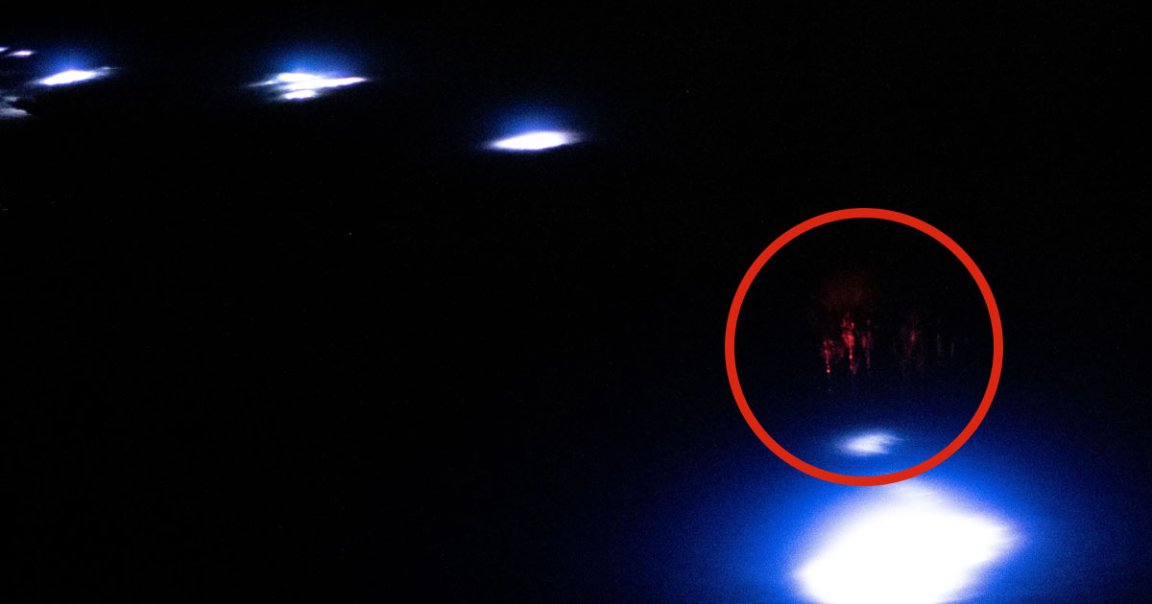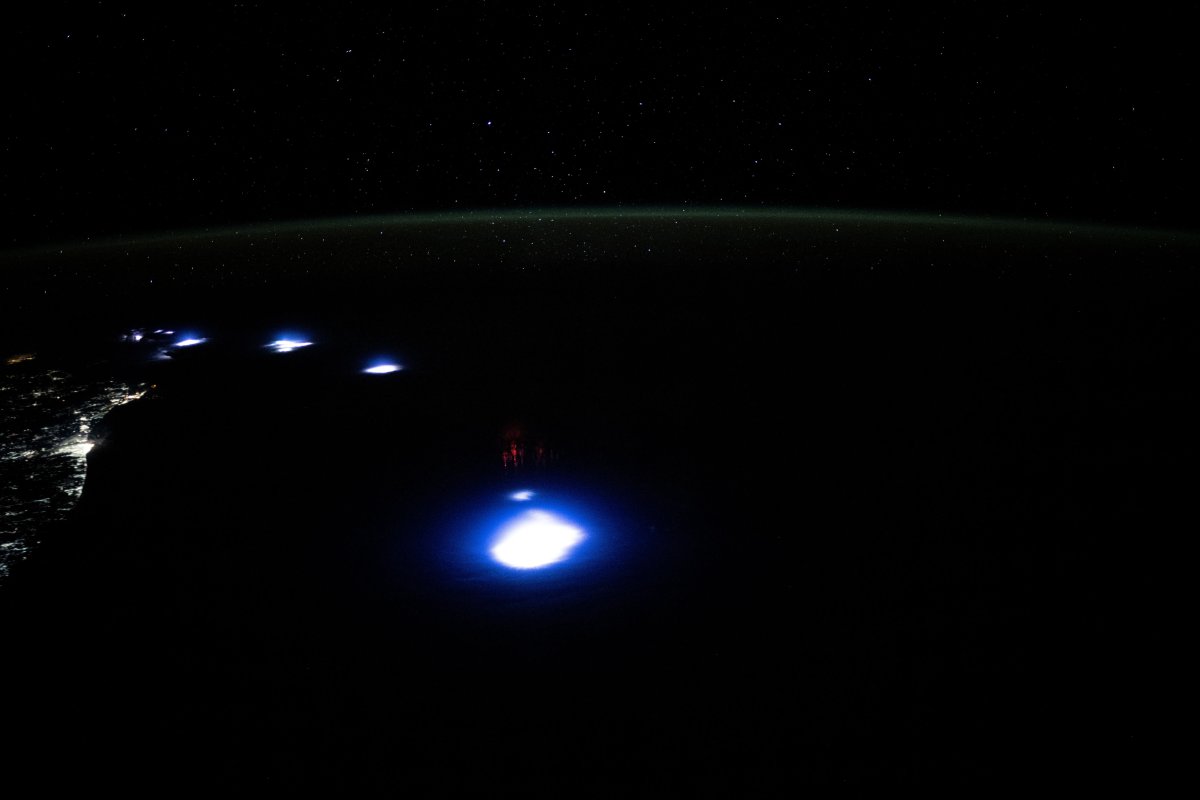
Sprite or Coke?
A photograph taken by NASA astronaut Matthew Dominick from the International Space Station shows mysterious blue orbs far below the station and dotting the air off the coast of South Africa. Among them are tiny red sparks of light — best seen in the full-resolution version — which only add to the image’s unusual ambiance.
As the space agency explained in a recent blog post, the big blue lights and dancing orbs are definitely not signs of an incoming alien invasion. Instead, the red dots are the result of an extremely rare weather event called “red sprites,” while the much larger blue orbs are lightning strikes — a marvelous show put on by Mother Nature.

Spritacular
While they still remain “less understood,” according to NASA, scientists believe red sprites are related to powerful lightning events and usually appear in the mesosphere, the third highest layer of the atmosphere which is home to “noctilucent” or “night shining” clouds.
From space, transient luminous events (TLEs) like red sprites usually become visible in timelapses taken with a wide lens.
In 2022, NASA launched a “citizen science project” called “Spritacular” in an effort to crowdsource images of sprites.
TLEs were first documented in 1989 by University of Minnesota researchers, who captured them by “sheer accident,” according to NASA, while they were testing a low-light TV camera for an upcoming rocket launch.
Photographed from the ground, red sprites appear like massive, jellyfish-like strands of red light.
Their red color is caused by the presence of nitrogen in the atmosphere reacting to the electrical charges of lightning storms.
In fact, they’re not even exclusive to Earth’s atmosphere. Scientists have observed them on Jupiter as well, where they appear blue, not red, due to the abundant hydrogen reacting with electrical charges in the planet’s atmosphere.
Updated to remove mistaken reference to gravity waves.
More on sprites: NASA Crowdsourcing Investigation of Otherworldly “Sprites”